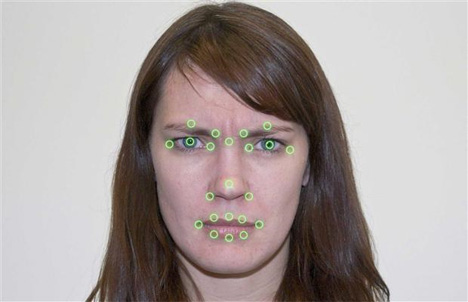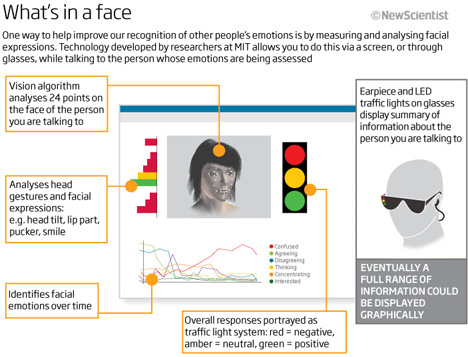
Nonverbal communication is said to make up much more of any conversation than the actual words being spoken. But for people who have trouble reading facial expressions it can be extremely difficult to tell if the person they are talking to is interested in what they are saying. Researchers from the University of Cambridge, UK, and the Massachusetts Institute of Technology are developing glasses that can read facial cues and let the speaker know what the listener is really thinking about the conversation. Using glasses embedded with a tiny camera about the size of a single grain of rice, the system analyzes 24 points on the listener’s face to analyze their reactions to the speaker’s words.

As the speaker is talking, a traffic light-type signal is displayed. Green means the listener is open to the conversation, yellow indicates some friction or confusion, and red tells the speaker that the listener is displaying signs of disagreement. The technology is being developed for people with autism who have trouble understanding facial expressions, but it could be useful in a number of other settings. Salespeople could use the emotion-reading glasses to communicate more effectively with their customers, and we’d be willing to bet that a fair number of marriages could be vastly improved by a gadget that takes the guesswork out of communication.

